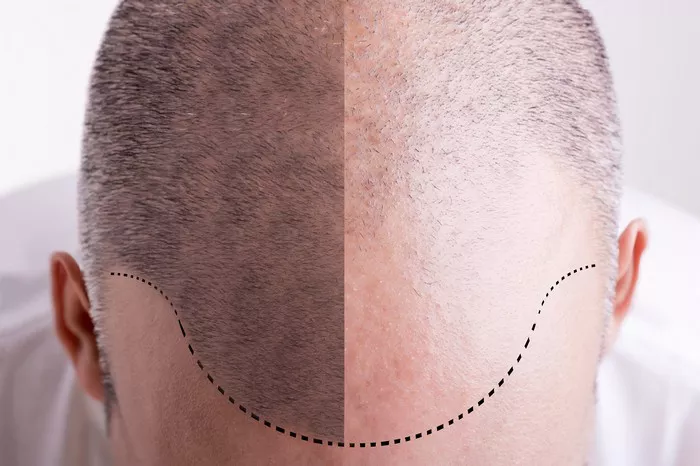Hair transplant surgery has become an increasingly popular solution for individuals experiencing hair loss or thinning. However, one of the primary concerns for many considering this procedure is the cost involved. Understanding the factors that contribute to the cost of a hair transplant can help individuals make informed decisions about their treatment options. In this article, we will delve into the various aspects that influence the cost of hair transplant surgery in the United States.
Average Cost Range of Hair Transplantation in US
The cost of a hair transplant can vary significantly depending on several factors. On average, patients can expect to pay between $4,000 and $15,000 for the procedure. However, it is essential to note that this range is just an estimate and can fluctuate based on individual circumstances. Factors such as the extent of hair loss, the technique used, and the expertise of the surgeon all play a role in determining the final cost.
Factors Affecting Cost of Hair Transplantation in US
Several key factors can influence the overall cost of a hair transplant:
1. Provider’s Expertise
The level of expertise and experience of the hair transplant surgeon is a significant factor in determining the cost of the procedure. Surgeons who are board-certified and have specialized training in hair restoration techniques may command higher fees due to their expertise and track record of successful outcomes.
Patients should prioritize selecting a surgeon with a proven reputation for delivering excellent results, even if it means paying a higher fee. While it may be tempting to opt for a cheaper option, the quality of the surgeon’s work is paramount in achieving satisfactory and natural-looking results.
2. Practice Location
The geographical location of the hair transplant practice also plays a role in pricing. Procedures performed in major metropolitan areas, where the cost of living and overhead expenses are higher, tend to be more expensive. Conversely, practices located in areas with a lower cost of living or with more competition among providers may offer more competitive pricing.
It’s essential for patients to consider travel expenses when evaluating the total cost of the procedure, especially if they are considering traveling to a different city or state for treatment.
3. Method Used
There are different techniques for performing hair transplant surgery, with follicular unit extraction (FUE), follicular unit transplantation (FUT), and robotic-assisted hair transplantation (ARTAS) being the most common. Each method has its own set of advantages, disadvantages, and associated costs.
FUE, which involves harvesting individual follicular units from the donor area, tends to be more labor-intensive and therefore may be more expensive than FUT, where a strip of tissue containing hair follicles is removed from the donor area. ARTAS, a robotic-assisted FUE technique, may also incur additional costs due to the use of advanced technology.
Patients should discuss the pros and cons of each method with their surgeon to determine the most suitable option based on their individual needs and budget.
What’s Included in the Cost
When evaluating the cost of a hair transplant, it’s crucial to understand what is included in the overall price. The following components are typically encompassed in the total cost of the procedure:
1. Consultation Fee
Most hair transplant clinics charge a consultation fee for the initial evaluation and discussion of treatment options. During the consultation, patients should inquire about the total price estimate for the procedure, including any additional fees or expenses.
2. Surgeon Fee
The surgeon’s fee covers the cost of the surgical procedure itself, including the surgeon’s time, expertise, and skill. This fee may vary depending on the surgeon’s experience, reputation, and geographic location.
3. Facility Fees
Facility fees encompass the cost of using the surgical facility or clinic where the procedure is performed. These fees cover overhead expenses such as rent, utilities, and equipment maintenance.
4. Anesthesia and Surgical Supply Fees
Anesthesia fees cover the cost of administering anesthesia during the procedure, ensuring that patients remain comfortable and pain-free throughout. Surgical supply fees include the cost of disposable instruments, equipment, and materials used during the surgery.
5. Pre- and Post-Op Appointments
Patients should inquire about any additional costs associated with pre-operative consultations, follow-up appointments, and post-operative care. These appointments are essential for monitoring progress, addressing any concerns, and ensuring optimal healing and recovery.
Insurance Coverage
It’s important to note that health insurance typically does not cover the cost of hair transplant surgery, as it is considered a cosmetic procedure. However, some insurance plans may offer coverage for specific medical conditions that cause hair loss, such as alopecia areata or traction alopecia.
Patients should review their insurance policy or consult with their provider to determine if any coverage or reimbursement options are available for their specific situation.
Results and Worth
Ultimately, the decision to undergo hair transplant surgery is a personal one that involves weighing the potential benefits against the associated costs. While the upfront expense of the procedure may seem significant, many individuals find the long-term results to be well worth the investment.
Hair transplant surgery offers a permanent solution to hair loss, restoring not only the appearance of a full head of hair but also confidence and self-esteem. Many patients report feeling more youthful, attractive, and self-assured following successful hair restoration.
It’s essential for individuals considering hair transplant surgery to carefully evaluate their motivations, expectations, and budgetary constraints before making a decision. Consulting with a qualified and experienced hair transplant surgeon can provide valuable insights and guidance to help patients make informed choices about their treatment options.
In conclusion, while the cost of hair transplant surgery in the United States can vary depending on several factors, the potential benefits and long-term results often justify the investment for many individuals. By understanding the factors that influence pricing and carefully considering the value of the procedure, patients can make confident decisions about restoring their hair and reclaiming their confidence and self-esteem.


